High cholesterol levels can increase the risk of heart disease and stroke so it is essential to maintain healthy cholesterol levels through diet and lifestyle choices. Fortunately, certain foods have been shown to have cholesterol-lowering properties, making them valuable additions to a heart-healthy diet. In this comprehensive guide, we’ll explore the top 15 foods to lower cholesterol, detailing their nutritional benefits, scientific evidence, and practical tips for incorporating them into your daily meals. Without further ado, let’s know all these top 15 foods to lower cholesterol levels as soon as possible with ease.
Oats and Whole Grains
Oats and whole grains are rich in soluble fiber, which has been shown to help lower LDL (bad) cholesterol levels. Soluble fiber binds to cholesterol in the digestive tract, preventing its absorption into the bloodstream and promoting its excretion from the body. Oats and whole grains contain beta-glucan, a type of soluble fiber that helps reduce LDL cholesterol levels.

Oats and whole grains are also excellent sources of vitamins, minerals, and antioxidants, supporting overall health and well-being. Start your day with a bowl of oatmeal topped with fresh fruit and nuts for a hearty and cholesterol-lowering breakfast. Incorporate whole grains like brown rice, quinoa, barley, and whole wheat into your meals as side dishes or as the base of grain bowls and salads.
Beans and Legumes
Beans and legumes are nutritional powerhouses that are high in soluble fiber, protein, and plant-based compounds known as phytosterols, all of which contribute to their cholesterol-lowering effects which is why they are some of the best foods to lower cholesterol levels. Moreover, beans and legumes are an excellent source of plant-based protein, making them a valuable alternative to meat and dairy products for individuals looking to lower their cholesterol intake.
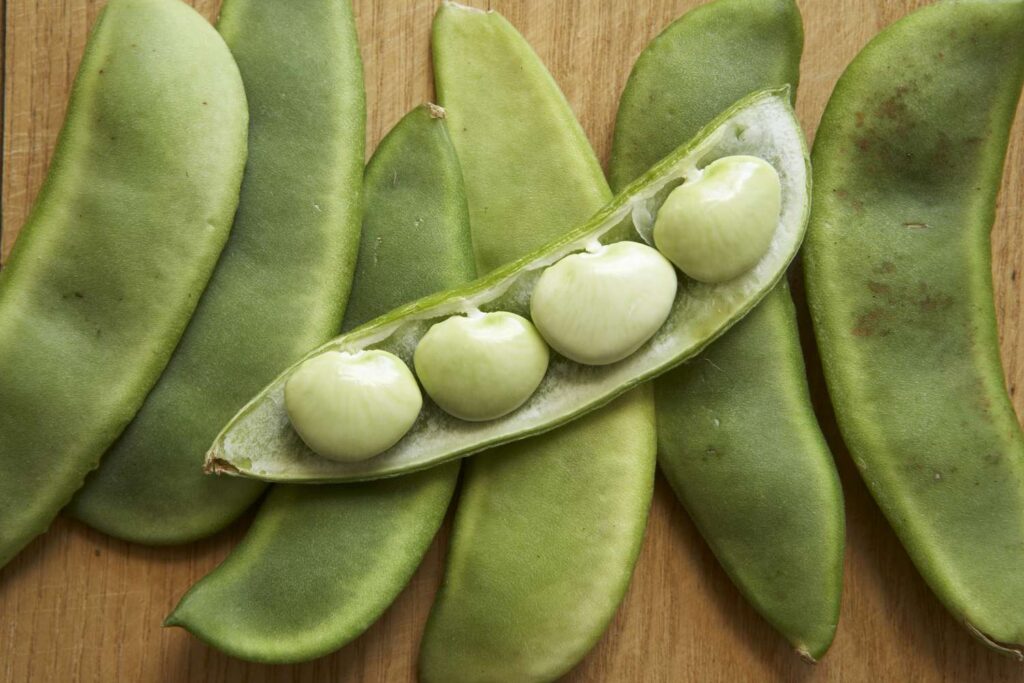
Incorporate beans and legumes like chickpeas, lentils, black beans, and kidney beans into soups, stews, salads, and chili for a cholesterol-lowering boost. You can also snack on roasted chickpeas or edamame for a satisfying and nutritious snack that supports heart health.
Nuts and Seeds
Nuts and seeds contain monounsaturated and polyunsaturated fats, which have been shown to lower LDL cholesterol levels and reduce the risk of heart disease. Certain nuts and seeds, such as walnuts, flaxseeds, and chia seeds, are rich in omega-3 fatty acids, which have anti-inflammatory properties and support heart health. In addition, nuts and seeds contain plant sterols, which are structurally similar to cholesterol and can help block its absorption in the intestines proving why they are some of the best foods to lower cholesterol.
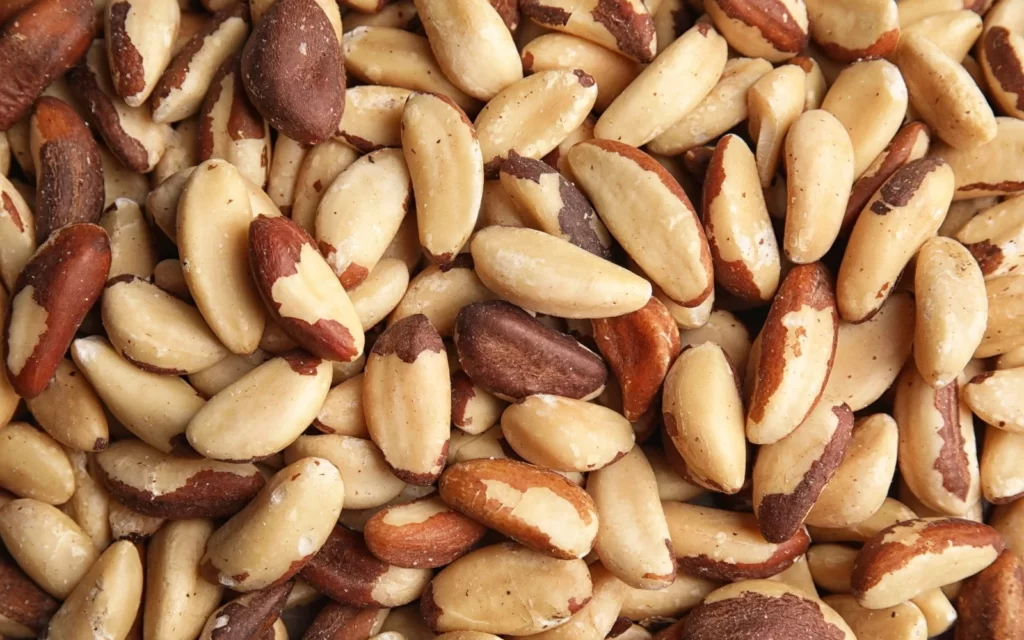
Almonds, walnuts, flaxseeds, chia seeds, and hemp seeds are particularly beneficial for cholesterol management. Enjoy a handful of mixed nuts or seeds as a snack between meals to satisfy hunger and promote heart health or sprinkle chopped nuts or seeds over oatmeal, yogurt, salads, or stir-fries for added flavor, texture, and nutritional benefits.
Fatty Fish
Fatty fish like salmon, mackerel, sardines, and trout are one of the best dietary sources of omega-3 fatty acids, which have been shown to reduce triglyceride levels, increase HDL (good) cholesterol levels, and improve overall heart health. Fatty fish are also rich in high-quality protein, which is essential for muscle repair, immune function, and overall health.

Aim to include fatty fish in your diet at least twice a week to reap the cholesterol-lowering and heart-healthy benefits. Grill, bake, or steam fish with herbs, spices, and citrus for a flavorful and nutritious meal that supports heart health.
Avocados
Avocados are a rich source of monounsaturated fats as well as both soluble & insoluble fiber all of which have been shown to reduce LDL cholesterol levels and increase HDL cholesterol levels making it one of the best foods to lower cholesterol levels. Consuming avocados regularly has been shown to not only help lower LDL cholesterol levels but also improve overall heart health, promote satiety, regulate blood sugar levels, and support digestive health.
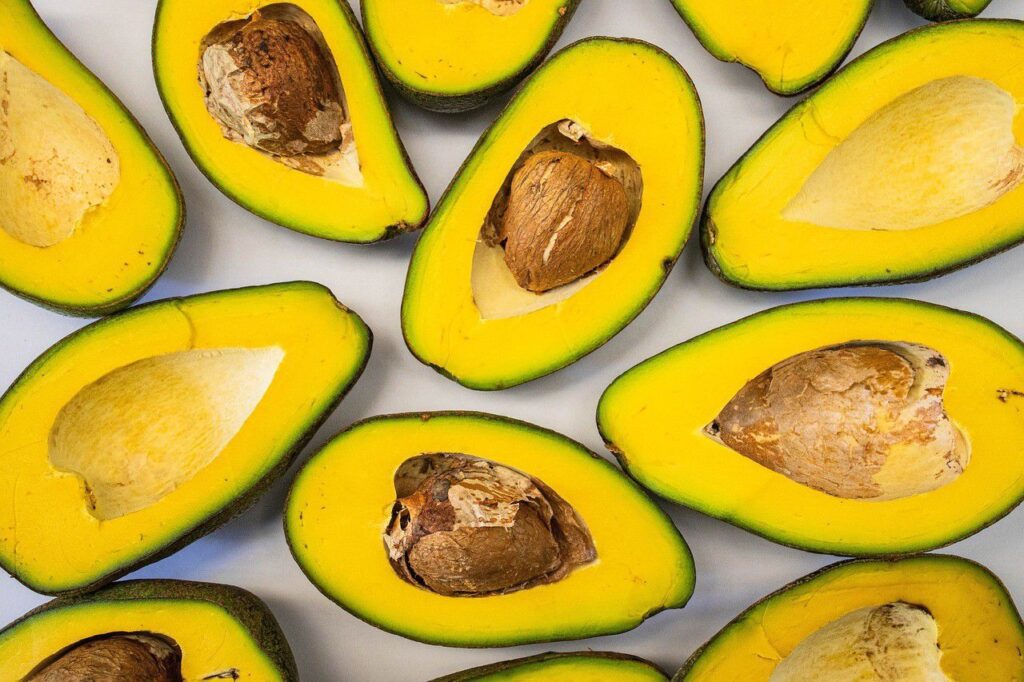
Add sliced avocado to salads, sandwiches, wraps, and tacos for a creamy texture and heart-healthy boost or mash avocado and spread it on whole grain toast or use it as a substitute for butter or mayonnaise in recipes for a nutritious and cholesterol-lowering alternative.
Olive Oil
Olive oil is a staple of the Mediterranean diet and is renowned for its heart-healthy properties. It is primarily composed of monounsaturated fats, particularly oleic acid, which has been shown to improve cholesterol levels and reduce inflammation. Furthermore, it is rich in antioxidants like vitamin E and polyphenols, and anti-inflammatory compounds that have been shown to lower LDL cholesterol levels, help protect cells from oxidative damage and reduce the risk of heart disease.

Use extra virgin olive oil as your primary cooking oil for sautéing, roasting, and frying to reap its heart-healthy benefits. You can also drizzle olive oil over salads, vegetables, pasta, and bread for added flavor, richness, and nutritional value.
Leafy Green Vegetables
Leafy green vegetables like spinach, kale, Swiss chard, and collard greens are low in calories and high in soluble fiber, vitamins like A, C, K, minerals like magnesium, potassium, folate, and antioxidants. So, consuming leafy greens regularly has been associated with lower LDL cholesterol levels and improved heart health which makes it another great addition in our list of best foods to lower cholesterol levels.
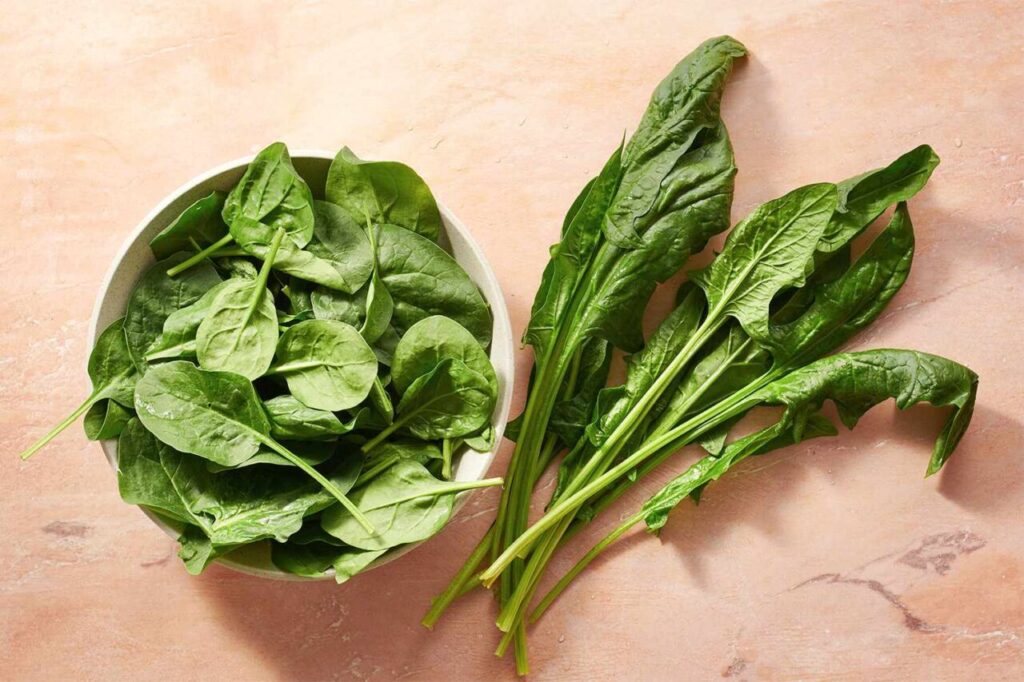
Incorporate leafy greens into salads, soups, stir-fries, omelets, and smoothies for a nutrient-packed and cholesterol-lowering boost or steam, sauté, or roast leafy greens with garlic, lemon, and herbs for a flavorful and nutritious side dish or main course.
Berries
Berries like strawberries, blueberries, raspberries, and blackberries are rich in soluble fiber, various vitamins, minerals, and antioxidants like anthocyanins, flavonoids, and polyphenols, making them valuable allies in the fight against high cholesterol and heart disease. Moreover, moreover, these antioxidants in berries help protect cells from oxidative damage and reduce inflammation.

Enjoy fresh berries as a snack between meals, or add them to yogurt, oatmeal, smoothies, and salads for a delicious and cholesterol-lowering boost. You can also freeze berries and blend them into homemade sorbets, popsicles, and fruit-based desserts for a refreshing and nutritious treat.
Garlic
Garlic has been used for centuries for its medicinal properties, including its potential to lower cholesterol levels and improve heart health. Garlic contains allicin, a sulfur-containing compound that has been shown to reduce LDL cholesterol levels and improve overall heart health by decreasing the risk of heart disease. In addition, garlic is rich in antioxidants like vitamin C and selenium, which help protect cells from oxidative damage and support immune function. So, that is why, garlic is also one of the best foods to lower cholesterol.

Add fresh or roasted garlic to soups, sauces, marinades, and dressings for a flavorful and heart-healthy boost. Incorporate garlic into your favorite savory dishes, such as stir-fries, pasta dishes, roasted vegetables, and grilled meats, for added depth of flavor and nutritional benefits.
Apples
Apples being one of the most healthiest fruits, it is not surprising to find them in our list of best foods to lower cholesterol, right? Apples are rich in soluble fiber particularly pectin, antioxidants like vitamin C and flavonoids. Pectin is a type of fiber that has been shown to help lower LDL cholesterol levels and improve heart health. Consuming apples regularly has been associated with a reduced risk of heart disease and stroke. And as we all know, those antioxidants help to protect cells from oxidative damage and reduce inflammation.
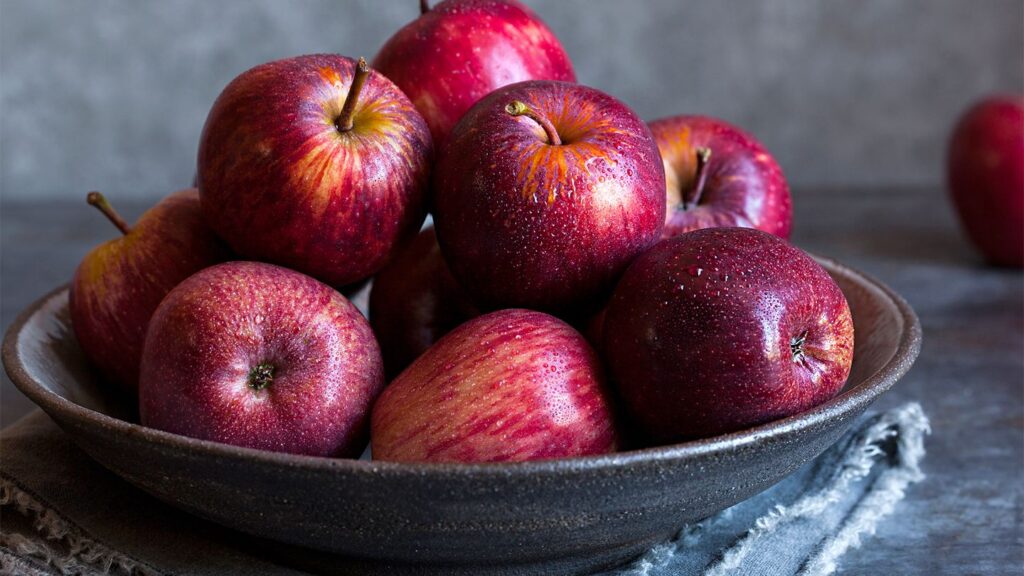
Enjoy fresh apples as a convenient and nutritious snack, or slice them and dip them in nut butter or yogurt for added flavor and satiety. Another good idea to include apples in your diet is to add them into baked goods like muffins, cakes, and crisps, or add them to salads, oatmeal, and smoothies for a cholesterol-lowering boost.
Citrus Fruits
Citrus fruits like oranges, grapefruits, lemons, and limes are rich in soluble fiber, vitamin C, and antioxidants, all of which contribute to their cholesterol-lowering effects. Consuming citrus fruits regularly has been associated with improved heart health and reduced risk of heart disease just like most of the foods we listed here. On top of that, citrus fruits being very rich in vitamin C possess antioxidant properties and support immune function.
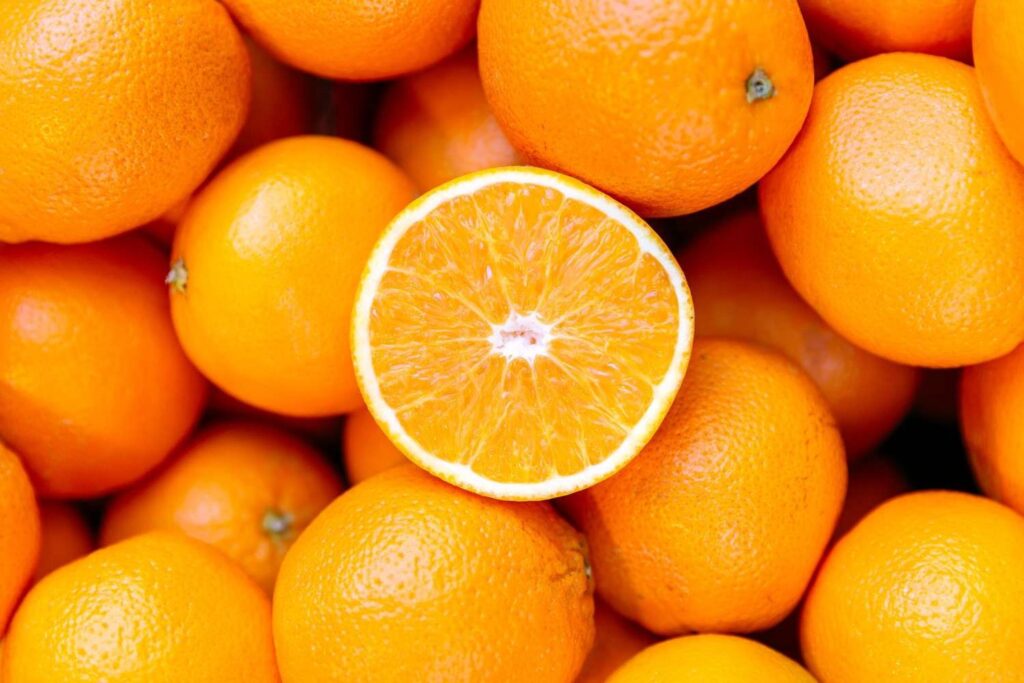
Enjoy citrus fruits as a refreshing snack on their own, or add them to salads, salsas, marinades, and desserts for a burst of flavor and nutritional benefits. Squeeze fresh lemon or lime juice over fish, poultry, vegetables, and grains for added acidity and cholesterol-lowering effects.
Tea
Tea, particularly green tea and black tea, is rich in antioxidants called catechins, which have been shown to help lower LDL cholesterol levels and reduce inflammation as well as the risk of heart disease. Consuming tea regularly as part of a balanced diet and healthy lifestyle may contribute to improved heart health and overall well-being by lowering the cholesterol levels. Not only tea is one of the best foods to lower cholesterol but also it is rich in polyphenols, which have various health benefits, including cardiovascular protection and cancer prevention.
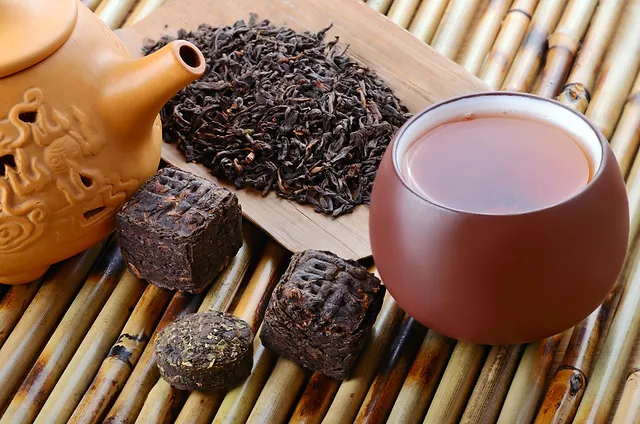
Enjoy hot or iced tea as a refreshing beverage throughout the day, or incorporate tea into recipes for marinades, sauces, and desserts for added flavor and health benefits. Choose high-quality tea made from organic and sustainably sourced ingredients for the best taste and nutritional value.
Dark Chocolate
Dark chocolate is rich in antioxidants called flavonoids, particularly flavanols, which have been proven to help lower LDL cholesterol levels and improve heart health. Moreover, dark chocolate is also rich in polyphenols, which have various health benefits, including cardiovascular protection and improved blood flow. The key is to consume dark chocolate in moderation to get the full benefits of it while ignoring its unhealthy side effects.
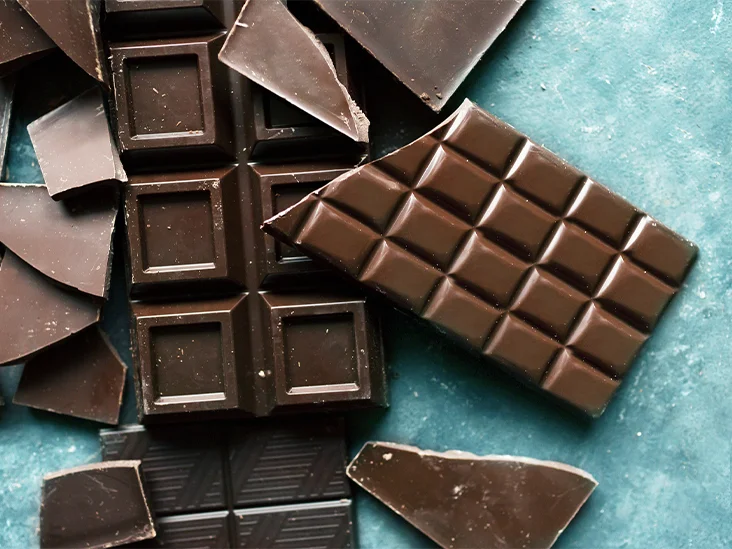
Enjoy small portions of dark chocolate (70% cocoa or higher) as a decadent and heart-healthy treat. You can also incorporate dark chocolate into recipes for desserts, smoothies, and baked goods for added flavor, richness, and nutritional benefits.
Red Wine (in Moderation)
Red wine contains antioxidants like resveratrol and various researches have shown that it can help lower LDL cholesterol levels and reduce the risk of heart disease. Consuming red wine in moderation as part of a balanced diet and healthy lifestyle may contribute to improved heart health and overall well-being.

Just like dark chocolate and some other foods in this list of best foods to lower cholesterol, red wine is also rich in other antioxidants, including flavonoids and polyphenols, which have various health benefits, including cardiovascular protection. Enjoy a glass of red wine with dinner as a delicious and heart-healthy beverage. Choose high-quality red wine made from organic and sustainably sourced grapes for the best taste and nutritional value.
Soy Foods
Soy foods like tofu, tempeh, edamame, and soy milk are excellent sources of plant-based protein, which help to lower LDL cholesterol levels and reduce the risk of heart disease. On top of that, they also contain isoflavones, plant compounds that have been shown to help lower LDL cholesterol levels and improve overall heart health. Thus, they are definitely some of the best foods to lower cholesterol levels.
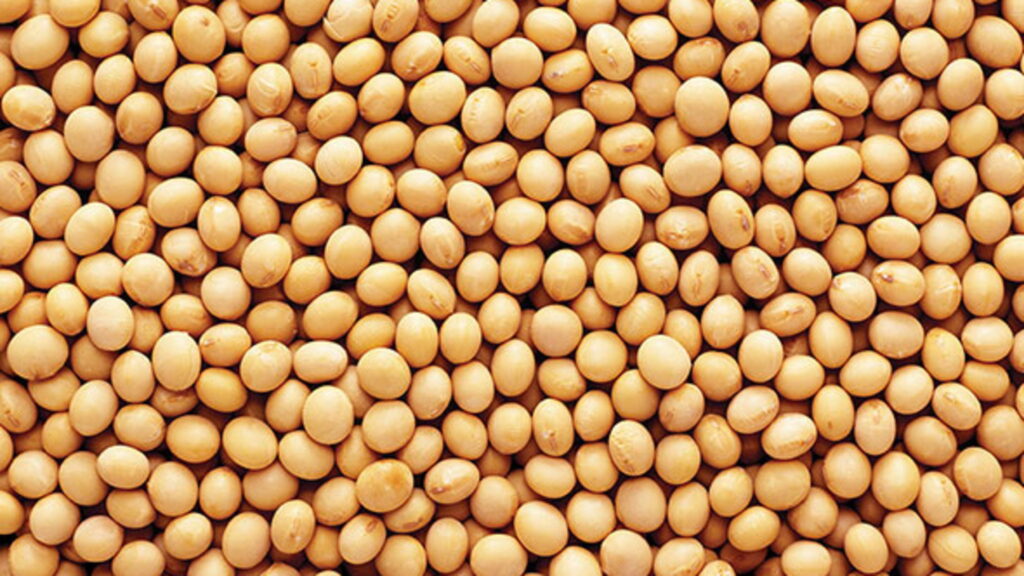
Incorporate soy foods into your meals as meat alternatives or as additions to stir-fries, salads, soups, and sandwiches for a cholesterol-lowering boost. Experiment with different types of soy foods, such as tofu, tempeh, edamame, and soy milk, to find the ones you enjoy most and incorporate them into your diet regularly.
Conclusion
Incorporating these top 15 foods to lower cholesterol levels into your diet can help you maintain healthy cholesterol levels and reduce your risk of heart disease and stroke. By including a variety of whole foods like oats, beans, nuts, fatty fish, avocados, olive oil, leafy greens, berries, garlic, apples, citrus fruits, tea, dark chocolate, red wine, and soy foods in your meals and snacks, you can support your heart health and overall well-being.
Remember to focus on a balanced diet rich in fruits, vegetables, whole grains, lean proteins, and healthy fats, and to limit your intake of processed foods, refined sugars, and unhealthy fats to optimize your cholesterol levels and improve your cardiovascular health. Additionally, be sure to stay physically active, maintain a healthy weight, manage stress, and avoid smoking to further reduce your risk of heart disease and promote longevity. Hopefully, you found this article on top 15 foods to lower cholesterol helpful enough. If you really did then let us know your valuable thoughts in the comment section. Thanks for visiting and appreciating our work.
